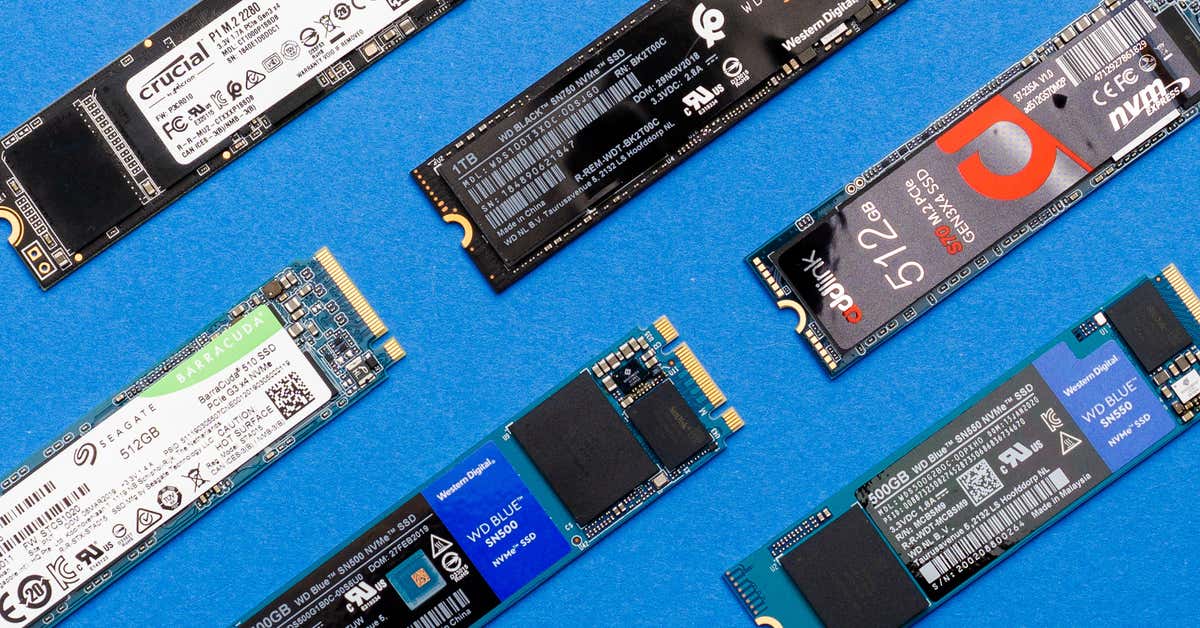SSD Advantages and Disadvantages
A Solid State Drive (SSD), also called electronic disk or solid-state disk, is a computer data storage device that uses flash memory chips as in USB drives, smartphones, and memory cards. There are no moving parts present on the SSD and keeps the data safe. This is the primary reasons behind the better performance of a SSD when compared to hard disk drives (HDDs). The SSDs have their own share of advantages and disadvantages, which are listed below.
SSD Advantages
- Durability
- Less Power Consumption
- Better Reading and Writing Speed
- Permanent Deletion of Data
- Less Noise: SSD produces less noise
- File Fragmentation
- Faster Boot and Better Computing Performance
- Less Heat
Durability of SSD:
Since the SSD does not have any moving parts, it can keep the data safe in an event of dropping it. Unlike a mechanical HDD, which when subjected to a shock causes considerable manage, a SSD has the ability to withstand and handle shock better(like dropping the laptop bag). The absence of the moving parts also means that there is less occurrence of wear and tear in a SSD. Further, there is no mechanical failure in SSD meaning higher mechanical reliability. The SSD is lighter than a HDD and is resistant to shock and temperature changes.
Less Power Consumption of :
A solid state drive consumes less power when compared to a HDD. This is primarily because a SSD lacks moving parts; especially does not have a motor. This is useful in storage computers and laptops where the power requirement is minimal. High-performance flash-based SSD requires only half to third of HDD power.
Better Reading and Writing Speed: Solid state drives have faster reading and writing speed. On a SSD, there is no necessity for the drive platter to spin as in a HDD. Also, there is no actuator arm for moving the read/write heads that physically seek data (for or add) to the drive. Further, data reading and writing to flash memory chips occur instantly in a SSD, allowing the SSDs to have better reading and writing speeds.
Permanent Deletion of Data: This feature is highly useful for people and situations where data security is highly cardinal. When data is either overwritten or deleted on a HDD, there is a chance of recovery. Since the new data does not fall in line with the old data, there exists a chance for some old data to remain. On a SSD, data is deleted permanently leaving no minute traces of the old data.
Less Noise: SSD produces less noise because it uses computer chips and not moving parts. Since it is non-mechanical, there is virtually no noise.
File Fragmentation: The constant read performance feature makes file fragmentation is simple and a non-issue in a SSD. Data can be accessed in an instant regardless of where it is stored.
Faster Boot and Better Computing Performance: SSDs allow faster booting of computers as the drive is not required to spin up thereby improving the performance of the computer.
Less Heat: Because solid state drives lack motors, they generate less heat unlike HDDs. This is an important feature for people using laptops as it allows them to use their laptops with more comfort on their laps for longer time periods with the least worry about burns.
Although, the SSD had many advantages but there are certain disadvantages.
It’s Disadvantages
- Price
- Recovery of Lost Data
- Storage Capacity
- Life Expectancy
- Slower Write Speed
- Latest Technology
- Write/Erase Cycle
- High Power
- Write Speed
Price of ssd:
The biggest disadvantage of a solid state drive is the cost. SSD costs more than a conventional hard disk drive.
Recovery of Lost Data: The inability to recover old data is one of the biggest disadvantages of a SSD. Data is permanently and completely deleted from the drives. Though, this is an advantage in terms of data security, still, permanent data deletion could lead to irreparable consequences in certain events where there is no back-up for deleted data.
Storage Capacity :
Solid state drives are highly expensive and are sold with a hefty price tag unlike conventional HDDs. Thus, SSDs are predominantly available in smaller and affordable storage sizes. The storage capacity is usually under 160 GB.
Life Expectancy: Some of the solid state drives especially those using NAND memory-flash chips can be write only for a limited number of time. Although, solid state dives using DRAM technology do not come with such a limitation, they cost more.
Slower Write Speed: Some of the less expensive solid state drives, especially the MLC based types, come with slower write speeds when compared to read speeds. These speeds are relatively lower than write speeds on conventional hard disk drives.
Latest Technology: In recent times, the use of SSDs has increased leading to various issues. These issues have to be resolved before obtaining optimal performance from SSDs. For example, the Windows operating systems that were used before Windows 7 were not optimized for SSDs. Thus, using a solid state drive with an un-optimized operating system, like Windows Vista, tends to reduce the drive’s performance and shorten its lifespan.
Write/Erase Cycle:The SSD write/erase cycle is limited. A HHD can stand upto 1 to 5 million write cycles, whereas, a SSD averages 100,000 cycles, meaning decrease in the SSD performance over time. This limitation in write cycles causes more trouble. Whereas, on conventional hard disk drives data can be delete and rewritten for unlimited number of times.
High Power: The SSDs using DRAM technology require more power unlike the conventional HDDs. These drives continue to consume power when the system starts while a conventional hard disk will not.
Write Speed: Although, SSDs can access data quickly, they usually take more time to save data. The device on the SSD must first delete the old data in order to write the new one. This is a big disadvantage, which mostly goes unnoticed by an average user, for data systems that are involved in the transfer of large amounts of data.
conclusion
Solid State Drives are a good replacement for traditional HDDs especially in netbooks and notebooks. With recent advancements, SSDs are expected to be affordable and advanced in the future.













